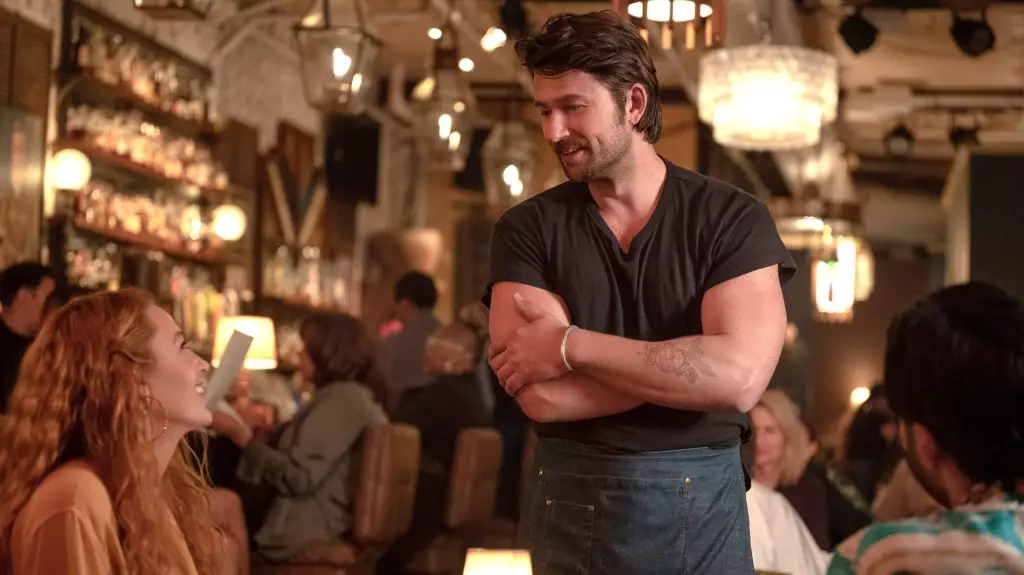The movie industry, often romanticized for its glitz and glamor, is no stranger to scandal. Recent events surrounding the filming of “It Ends With Us” have thrust Hollywood’s darker side into the spotlight. A complaint filed by Blake Lively against co-star and director Justin Baldoni has sparked a wave of global discussion regarding alleged sexual harassment and the toxic undercurrents within the entertainment industry. The unfolding situation has seen notable support for Lively and raised awareness around the systemic issues that many actors face.
Brandon Sklenar, one of the film’s actors, has been vocal in urging the public to examine the details laid out in Lively’s complaint. He shared a screenshot on social media inviting his followers to engage with the 80-page document that outlines a range of disturbing claims. Central to the allegations is the assertion that Baldoni’s behavior fostered a “hostile work environment,” inhibiting the creative process and tainting the collaborative spirit that film sets are supposed to embody.
Lively’s complaint alleges instances of improvised intimacy without consent, including unapproved kissing scenes and sexually charged remarks that contribute to a deeply uncomfortable atmosphere. Such actions have been described as not just inappropriate but harmful, revealing the sometimes exploitative dynamics that can exist between male directors and female actors. The complaint highlights a structured campaign aimed at discrediting Lively—a serious charge that speaks volumes about the lengths some may go to preserve their public image.
The outpouring of support for Lively from various figures in Hollywood demonstrates a growing collective awareness about the need for cultural change. Notable personalities, including Gwyneth Paltrow and Amy Schumer, have rallied around Lively, lending their voices to the growing movement against sexual misconduct in the industry. Such support is crucial, as it underscores the importance of solidarity among actors and filmmakers to combat the pervasive culture of silence that too often protects perpetrators.
Moreover, organizations like SAG-AFTRA have also taken a stand, denouncing the allegations of a PR campaign that seeks to malign Lively’s public image. Their response signifies a broader commitment within the industry to foster safer working environments and challenge injustices faced by women. This acknowledgment signals an essential shift towards accountability—a move that feels long overdue in a realm that has historically minimized women’s voices.
The fallout for Baldoni has been swift and severe. Major professional consequences include his removal from his representation at WME, a talent agency that boasts many prominent figures, including Lively herself. Such actions indicate that the industry is beginning to take a firm stance against alleged misconduct. The rescinding of the Voices of Solidarity Award adds to this wave of consequences, symbolizing a rejection of toxic behavior among male allies.
These repercussions are not only punitive but serve as a wakeup call to those in similar positions of power. The reversal of Baldoni’s accolades illustrates a growing intolerance for behavior that perpetuates misogyny and harassment. The ongoing scrutiny emphasizes the need for a cultural reset, where protection and support for individuals who speak out against their abusers becomes the norm, not the exception.
The recent developments surrounding “It Ends With Us” distill a fundamental discourse within Hollywood: the urgent need for change regarding how women are treated in the film industry. Support for Lively highlights a collective commitment to dismantling the structures that enable harassment and abuse. While this moment serves as a painful reminder of the challenges many face, it also provides an opportunity for growth and reform in an industry long stuck in harmful patterns.
As advocates for equality and respect within the creative sphere, it is essential to continue fostering an environment where stories can be shared and where changes can be enacted. The voices rising in support of Lively reflect a broadening understanding that the battle against systemic abuse is far from over, and it is up to all involved—industry leaders, creators, and audiences alike—to ensure that equality and integrity stand at the forefront of Hollywood’s future.
